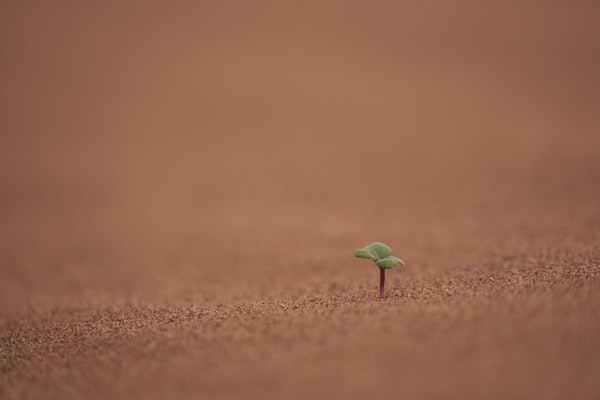The chrysalis that isn't there
I wrote the following post while listening to this track. Perhaps you will enjoy reading it to the same sounds. Otherwise, please consider it a whimsical recommendation. 🙂
I should really start keeping a log of different stories in the news all of which point to the little-acknowledged but only-evident fact that science – like so many things, including people – does not embody lofty ideals as much as the aspirations to those ideals. Nature News reported on January 31 that “a language analysis of titles and abstracts in more than 100,000 scientific articles,” published in the British Medical Journal (BMJ), had “found that papers with first and last authors who were both women were about 12% less likely than male-authored papers to include sensationalistic terms such as ‘unprecedented’, ‘novel’, ‘excellent’ or ‘remarkable’;” further, “The articles in each comparison were presumably of similar quality, but those with positive words in the title or abstract garnered 9% more citations overall.” The scientific literature, people!
Science is only as good as its exponents, and there is neither meaning nor advantage to assuming that there is such a thing as a science beyond, outside of and without these people. Doing so inflates science’s importance when it doesn’t deserve to be, and suppresses its shortcomings and prevents them from being addressed. For example, the BMJ study prima facie points to gender discrimination but it also describes a scientific literature that you will never find out is skewed, and therefore unrepresentative of reality, unless you acknowledge that it is constituted by papers authored by people of two genders, on a planet where one gender has maintained a social hegemony for millennia – much like you will never know Earth has an axis of rotation unless you are able to see its continents or make sense of its weather.
The scientific method describes a popular way to design experiments whose performance scientists can use to elucidate refined, and refinable, answers to increasingly complex questions. However, the method is an external object (of human construction) that only, and arguably asymptotically, mediates the relationship between the question and the answer. Everything that comes before the question and after the answer is mediated by a human consciousness undeniably shaped by social, cultural, economic and mental forces.
Even the industry that we associate with modern science – composed of people who trained to be scientists over at least 15 years of education, then went on to instruct and/or study in research institutes, universities and laboratories, being required to teach a fixed number of classes, publish a minimum number of papers and accrue citations, and/or produce X graduate students, while drafting proposals and applying for grants, participating in workshops and conferences, editing journals, possibly administering scientific work and consulting on policy – is steeped in human needs and aspirations, and is even designed to make room for them, but many of us non-scientists are frequently and successfully tempted to address the act of being a scientist as an act of transformation: characterised by an instant in time when a person changes into something else, a higher creature of sorts, like a larva enters a magical chrysalis and exits a butterfly.
But for a man to become a scientist has never meant the shedding of his identity or social stature; ultimately, to become a scientist is to terminate at some quasi-arbitrary moment the slow inculcation of well-founded knowledge crafted to serve a profitable industry. There is a science we know as simply the moment of discovery: it is the less problematic of the two kinds. The other, in the 21st century, is also funding, networking, negotiating, lobbying, travelling, fighting, communicating, introspecting and, inescapably, some suffering. Otherwise, scientific knowledge – one of the ultimate products of the modern scientific enterprise – wouldn’t be as well-organised, accessible and uplifting as it is today.
But it would be silly to think that in the process of constructing this world-machine of sorts, we baked in the best of us, locked out the worst of us, and threw the key away. Instead, like all human endeavour, science evolves with us. While it may from time to time present opportunities to realise one or two ideals, it remains for the most part a deep and truthful reflection of ourselves. This assertion isn’t morally polarised, however; as they say, it is what it is – and this is precisely why we must acknowledge failures in the practice of science instead of sweeping them under the rug.
One male scientist choosing more uninhibitedly to call his observation “unprecedented” than a female scientist might have been encouraged, among other things, by the peculiarities of a gendered scientific labour force and scientific enterprise, but many male scientists indulging just as freely in their evaluatory fantasies, such as they are, indicates a systemic corruption that transcends (but not escapes) science. The same goes for, as in another recent example, for the view that science is self-correcting. It is not because people are not, and they need to be pushed to be. In March 2019, for example, researchers uncovered at least 58 papers published in a six-week period whose authors had switched their desired outcomes between the start and end of their respective experiments to report positive, and to avoid reporting negative, results. When the researchers wrote to the authors as well as the editors of the journals that had published the problem papers, most of them denied there was an issue and refused to accept modifications.
Again, the scientific literature, people!



